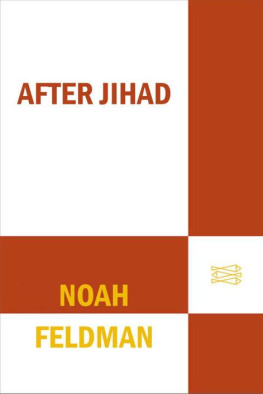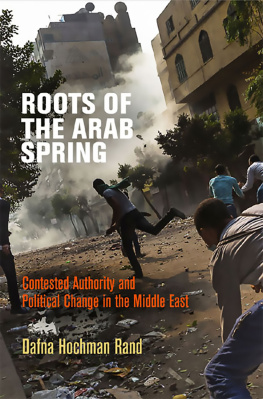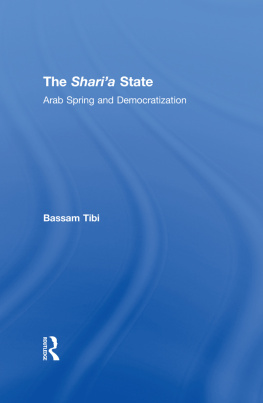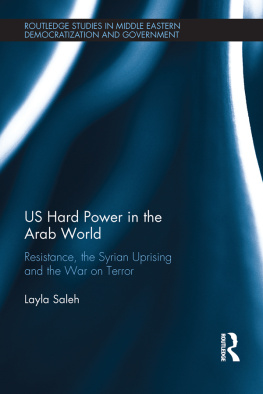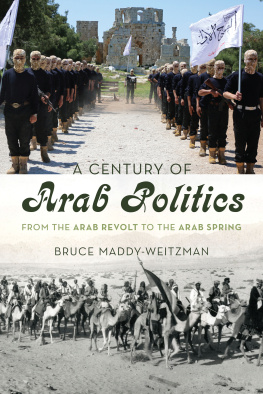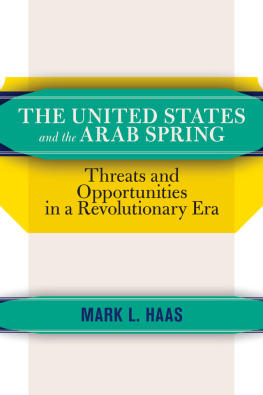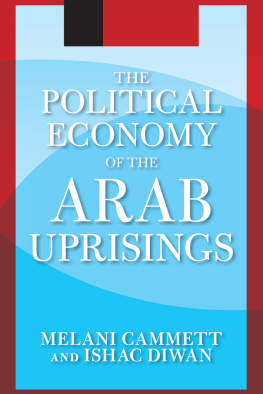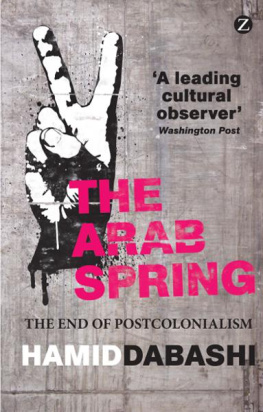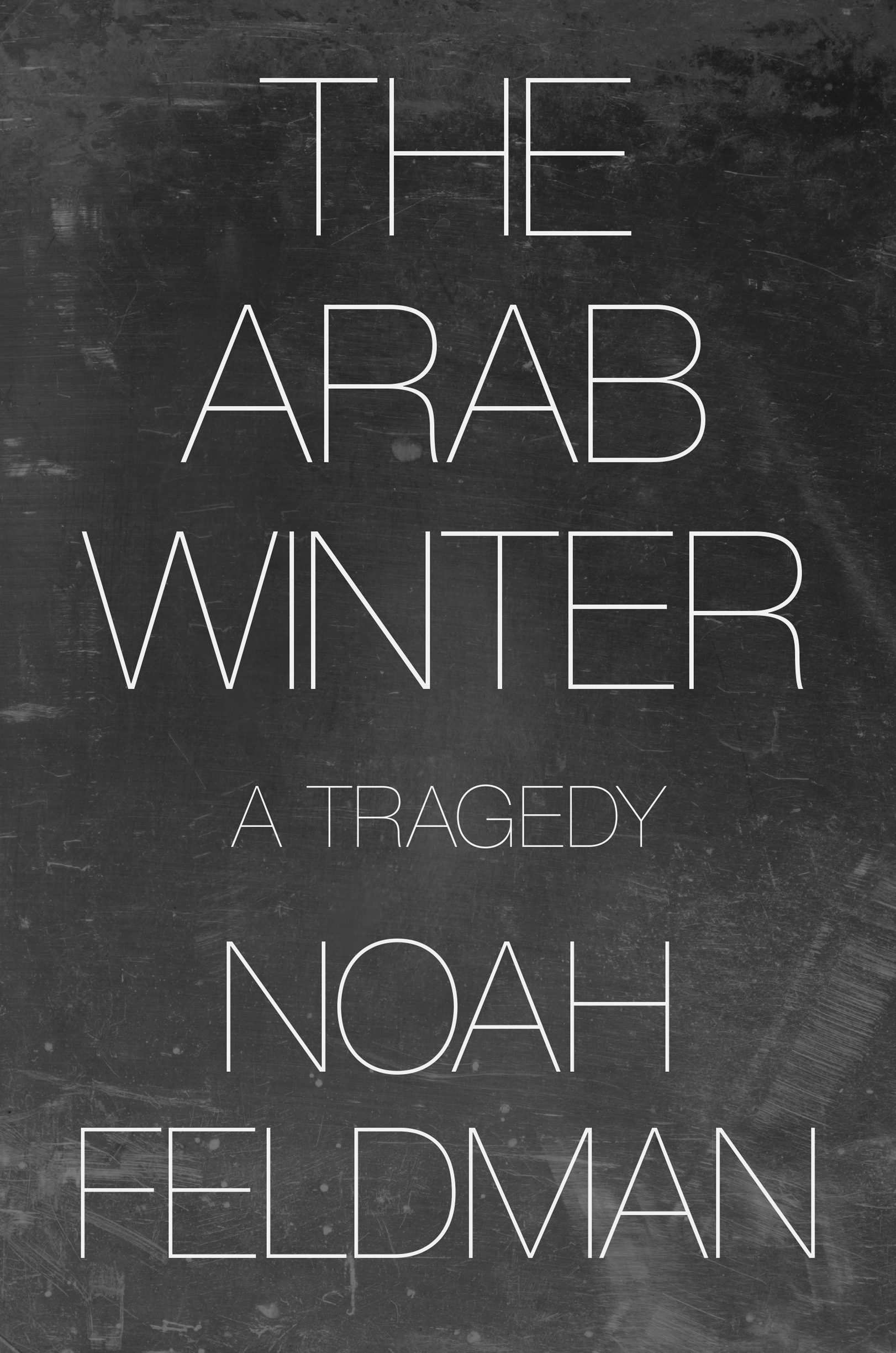THE ARAB WINTER
THE ARAB WINTER
A TRAGEDY
NOAH FELDMAN
PRINCETON UNIVERSITY PRESS
PRINCETON AND OXFORD
Copyright 2020 by Noah Feldman
Requests for permission to reproduce material from this work should be sent to permissions@press.princeton.edu
Published by Princeton University Press
41 William Street, Princeton, New Jersey 08540
6 Oxford Street, Woodstock, Oxfordshire OX20 1TR
press.princeton.edu
All Rights Reserved
Version 1.0
Library of Congress Cataloging-in-Publication Data
Names: Feldman, Noah, 1970 author.
Title: The Arab Winter : A Tragedy / Noah Feldman.
Description: Princeton, New Jersey : Princeton University Press, [2020] | Includes bibliographical references and index.
Identifiers: LCCN 2019030392 (print) | LCCN 2019030393 (ebook) | ISBN 9780691194929 (hardback) | ISBN 9780691201443 (ebook)
Subjects: LCSH: Arab Spring, 2010 | Arab countriesPolitics and government21st century.
Classification: LCC DS39.3 .F45 2020 (print) | LCC DS39.3 (ebook) | DDC 909/.097492708312dc23
LC record available at https://lccn.loc.gov/2019030392
LC ebook record available at https://lccn.loc.gov/2019030393
British Library Cataloging-in-Publication Data is available
Editorial: Fred Appel and Jenny Tan
Production Editorial: Mark Bellis
Text Design: Lorraine Doneker
Jacket Design: Layla Mac Rory
Production: Erin Suydam
Publicity: James Schneider and Kathryn Stevens
For Owen Fiss
CONTENTS
PREFACE
Al-shab
Yurid
Isqat al-nizam!
The people
Want
The overthrow of the regime!
These words, chanted rhythmically all over the Arabic-speaking world beginning in January 2011, promised a transformation in the history of the Middle East. For the first time, mass movements of ordinary people sought to take their political fate into their own hands and shape a better future for themselves. The optimism of their aspirations and the bravery of their efforts met with sympathy and excitement around the globe, especially from believers in the value of self-government. The most exciting, revolutionary aspect of the Arab spring was that the people were acting on their own, wresting control away from repressive governments and the international great powers who had long supported them.
Yet as we know today, the electrifying course of events that began in Tunisia, swept through Egypt, touched half a dozen more countries, and eventually reached Syria ultimately brought little good except to the place where it had begun. Slowly, painfully, by fits and starts, the heroic narrative of the Arab spring was transmuted into something much darker.
There is a word for what happens when nobility, hope, and the human capacity to take action run headlong into conflict, error, and the human capacity to inflict horror. We call that tragedy: the reversal that produces in us the distinctive combination of terror and empathy that Aristotle identified as catharsis. In the Arab spring, the poetic call to change was merely the opening chorus of the drama.
It took seven years for the tragedy to play out. And now, from a distance that is short when measured in historical time but long when measured by how much has happened, a consensus view is emerging about the Arab spring. The view can be stated simply: it was doomed to fail. In retrospect, experts and others are saying, there was no truly transformative political self-determination in those countries where people took to the streets and expressed their will to change. Arab popular self-government was a mirage, a false dawn. Seen through this retrospective lens, it is as though the Arab spring never happenedbecause genuine political action requires achieving power, and the people never actually succeeded in doing that, whatever they may briefly have hoped and believed.
The purpose of this book is to save the Arab spring from the verdict of implicit nonexistence and to propose an alternative account that highlights the exercise of collective, free political actionwith all the dangers of error and disaster that come with it. There is no question that, apart from removing a handful of dictators, the Arab spring did not achieve most of its grander aspirations. I do not dispute that in many ways, the Arab spring ultimately made many peoples lives worse than they were before. Some of the energies released by the Arab spring were particularly horrifying, including those that fueled the Syrian civil war and the rise of the Islamic State.
Nevertheless, there was an Arab spring that led to todays Arab winter. Somethingmany thingstook place. Those things mattered. People whose political lives had been determined and shaped from the outside tried politics for themselves, and for a time succeeded. That this did not lead to constitutional democracy or even to a more decent life for most of those affected is not a reason to believe that the effort was meaningless. To the contrary, the political action undertaken in the course of the Arab spring carried and still carries profound meaning. Failure is always one possible outcome of attempting self-determination. Regardless, the effort mattered for the course of history. And it matters for the future.
In place of the narrative of impotence and impossibility, I want to tell a different story of the arc from spring to winter, from inspired hope to tragic failure. In this account, the Arab spring marked a crucial, historical break from a long era in which empiresOttoman, European, and Americandefinitively shaped the course of Arab politics. The participants in the events of the Arab spring and its aftermath took charge of their politics through action. In doing so, they remade and transformed the two big forces that have dominated political ideas in the Arabic-speaking world for the past century, namely Arab nationalism and political Islam.
In what follows, I set out to offer an interpretation of the deep political meaning of the Arab spring and its consequences. This interpretation comprises three main claims, all far-reaching, and all potentially controversial.
My first argument begins with the observation that the Arab spring uprisings marked a new, unprecedented phase in Arab political experience, in which participants engaged in collective action for self-determination that was not conceived primarily in relation to imperial powerneither as the main target of the collective movement nor as its fomenter or supporter. In this important aspect, the Arab spring uprisings differed from the Arab independence movements of the early twentieth century, which were essentially anticolonial. They differed from the Arab revolutions against monarchs, which spanned the years 192073 and often had a significant component of anti-imperial ideology. And they differed rather obviously from the constitution making and civil war that followed the imperially initiated U.S. invasion of Iraq.
The core of the claim I wish to make relates to the political significance of this new phase. In my view, the central political meaning of the Arab spring and its aftermath is that it featured Arabic-speaking people acting essentially on their own, as full-fledged, independent makers of their own history and of global history more broadly. Arabs were acting to choose among possible Arab governments; and the governing forces arrayed against them were similarly Arab forces, not empires or imperial proxies. In basic terms, the events took place in a framework defined by Arab choice and Arab power. Inasmuch as such a thing is ever possible in a world of global interaction and interdependence, the Arab spring and the Arab winter were the Arabs


